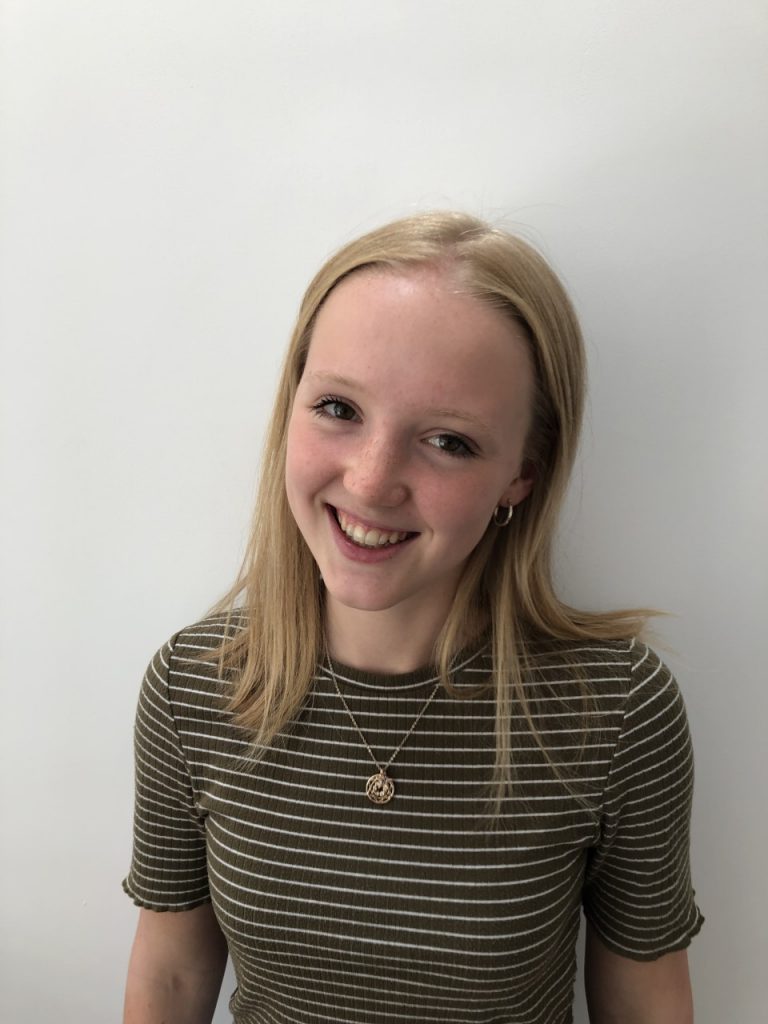
“At a time when the Arts, Culture, and Heritage sector is facing unprecedented challenges, it felt amazing to work on a project that I know will bring so much joy to so many people, and that will help keep the magic of the arts alive!”
Name: Holly Van Ryssen
Degree Programme: English
Year of Study (at the time of completing internship): 2nd Year
Pathway Programme Completed: Pathways to Arts, Culture, and Heritage
Internship Role/Job Title: Marketing Development Assistant
Internship Employer: Powderham Live!
When I tell people that I study English at the University of Exeter, I’m always met with the following response: “Ah, so you want to be a teacher then?”. Certainly, I’d be lying if I said that teaching wasn’t a profession that I’ve considered. However, I’ve always believed that the beauty of an English degree is that it enables you to study a subject you love while at the same time leaving your options open to explore several different career paths. Perfect for someone who can’t make decisions!
Going into my second year, nearly halfway through my time at university, I suddenly became acutely aware that I had no idea what I wanted to do at the end of my studies. I was keen to start exploring the options I had available to me and, was hoping to be able to use the summer before my final year to gain some invaluable work experience. When I heard about Professional Pathways, a careers scheme run by the University of Exeter providing sector-specific training and week-long paid internships, I knew that I had to apply.
Then, of course, Covid-19 hit. We were all sent home, the Pathways assessment centre was cancelled, and it seemed as though the prospect of a paid summer internship was firmly off the cards…
When I received an email from the Pathways team informing all applicants that they were working on securing some remote internships, I was shocked! While I felt terrified at the prospect of applying for and completing an internship entirely online, I knew that it was an opportunity that I couldn’t turn down and that would provide me with invaluable experience moving forward into the future. Numerous cover letters, and a couple of video interviews later, I’d secured an internship as a Marketing Assistant at Powderham Live!. I couldn’t wait to get stuck in!
During my internship at Powderham Live!, I worked on many different projects, all of which aimed to find new ways to promote not only the event itself but also the young musicians and their huge network of supporters. In particular, I enjoyed creating a set of brand guidelines that will now be used to inform all content published by Powderham Live!, both in print and online. Not only this, but I enjoyed working on a new social media strategy; in recent weeks, it has been really rewarding to see many of the campaigns I planned featured on the Powderham Live! social media pages.
Having had little experience in marketing, I was worried before starting my internship that I wouldn’t know what to do! At first, both Emily (fellow intern and University of Exeter student) and I felt hugely daunted at the prospect of creating a professional document that accurately represented the values and ethos of Powderham Live!. However, both Derry (Heritage Manager at Powderham Castle) and AJ (Countess of Devon and founder of Powderham Live!) were extremely supportive, clearly explaining what they wanted while at the same time allowing us to indulge in our own ideas and creative spirit. We were even invited to whole team meetings where we were able to share what we had been working on and give feedback to the other team members!
During the Covid-19 pandemic, I found it extremely rewarding to work on a project with a clear social purpose. I know that the work I carried out during my internship will not only help the team behind the scenes at Powderham Live!, but will have a huge impact on the experience of young musicians in Devon. Indeed, at a time when the Arts, Culture and Heritage sector is facing unprecedented challenges, it felt amazing to work on a project that I know will bring so much joy to so many people, and that will help keep the magic of the arts alive!
Without a doubt, the experience I’ve had working remotely at Powderham Live! will set me in good stead when entering the job market during these difficult times. Thanks to the Pathways scheme, I’ve now had practice applying for, beginning, and completing an internship entirely remotely, an experience that I know will be invaluable moving forward into the future! In particular, I’ve been able to improve my video-based interview technique, as well as develop my ability to work from home productively, skills which will help me both when completing my third year of university online, and also when applying for jobs.
When I received the email from the Professional Pathways team back in May informing us of some remote internship opportunities, I very nearly didn’t apply… However, I’m so glad that I did! While I’m still not sure what I want to do post-university, I now feel more confident about the prospect of graduating in the middle of a global pandemic! Pathways 2020 has taught me many things, most importantly, how to be adaptable and open-minded in the face of adversity. However, best of all, it has given me an answer to that dreaded question: “What did you do over lockdown?”.


